Table of Contents
Ever found yourself standing in the grocery store, staring at the endless rows of cooking oils, and feeling completely lost? Or maybe you have spent hours scrolling through an online store, trying to find the best cooking oil for health needs. YOU ARE NOT ALONE.
There are a variety of cooking oils available like olive oil, avocado oil, groundnut oil, coconut oil, and canola oil so it can be overwhelming. Plus, there’s a lot of confusing information about saturated and unsaturated fats, smoke points, and the health benefits or risks of each cooking oil.
It is no wonder so many of us turn to search engines asking, “WHAT IS THE BEST COOKING OIL FOR HEALTH?”
Nowadays, health problems are becoming more and more common. With our busy lifestyles and work demands, it is easy to overlook healthy eating habits.
That’s why understanding the impact of cooking oils is so important. It’s not just about avoiding bad fats; it’s about choosing good oils that are full of nutrients and are good for your health.
When we make informed choices about the cooking oils we use, we can improve our health and prevent diseases.
Let’s discuss which is the best cooking oil for health. Read thoroughly to know better.
Why Choosing the Best Cooking Oil For Health Matters?
Understand the Fats
If you want to know the right cooking oil, before that you have to understand the role of dietary fats in human health.
- Fats are a highly efficient source of energy. Each gram of fat provides about 9 calories. This is more than double the energy provided by carbohydrates and proteins. That is why fats are essential for maintaining our energy levels, especially during prolonged physical activities (Long-distance running, cycling, swimming, Zumba, aerobics, or spinning classes).
- Fats are crucial components of cell membranes, which are the structures that encase every cell in our bodies. Fats help maintain the integrity, flexibility, and functionality of these membranes, allowing cells to communicate and operate effectively.
- Fats are necessary for the synthesis of many hormones, including steroid hormones such as estrogen, testosterone, and cortisol. These hormones regulate a wide range of physiological processes, from reproductive health to stress response and metabolism.
- Fats aid in the absorption of fat-soluble vitamins (A, D, E, and K). These vitamins are vital for various bodily functions, including vision, bone health, immune function, and protecting cells from damage.
Choosing the right types of fats, such as those found in avocados, nuts, seeds, and certain oils (like olive oil and flaxseed oil), can enhance these health benefits.
Types of Fats
Fats are an essential part of a healthy diet, playing crucial roles in energy production, cell function, and nutrient absorption. However, not all fats are created equal. Choosing the right types of fats is vital for overall health, especially heart health. Let’s break down the different type.

The “Good” Fats – Unsaturated Fats
Unsaturated fats, primarily found in plant-based foods and liquids, are considered beneficial because they can improve cholesterol levels and reduce the risk of heart disease. There are two main categories:
- Monounsaturated Fats (MUFAs): These fats can help lower “bad” cholesterol (LDL) levels while maintaining or increasing “good” cholesterol (HDL) levels.
- Found In: Olive oil, avocado oil, avocados, peanuts, almonds, cashews, hazelnuts, and other nuts and seeds.
- Benefits: May reduce the risk of heart disease and stroke, provide nutrients for cell development and maintenance.
- Polyunsaturated Fats (PUFAs): These fats are essential, meaning your body can’t produce them on its own. They include omega-3 and omega-6 fatty acids, which are crucial for various bodily functions.
- Found In: Sunflower oil, corn oil, soybean oil, flaxseed oil, walnuts, fatty fish (like salmon, mackerel, herring, and tuna), and seeds like flaxseeds and chia seeds.
- Benefits: Support brain function, cell growth, and reduce inflammation. Omega-3s, in particular, are strongly linked to heart health.
The “Bad” Fats: Limit These
These fats can negatively impact your health, primarily by raising “bad” cholesterol levels and increasing the risk of heart disease.
Saturated Fats
These fats are mostly found in animal products, so they should be consumed in moderation.
- Found In: Butter, coconut oil, palm oil, red meat (beef, lamb, pork), processed meats, high-fat dairy products (cheese, whole milk, cream).
- Health Implications: Can increase total cholesterol and LDL cholesterol levels, raising the risk of heart disease and stroke.
Trans Fats
These are the most harmful fats and should be avoided as much as possible. Most trans fats are artificially created.
- Found In: Partially hydrogenated oils (often found in processed foods like some baked goods, fried foods, and margarine). Note: The FDA has banned the addition of artificial trans fats to most foods, but they may still be present in some older products or in very small amounts. Always check the ingredient list for “partially hydrogenated oils.”
- Health Implications: Raise LDL cholesterol while lowering HDL cholesterol, significantly increasing the risk of heart disease.
Understanding Cholesterol: LDL vs. HDL
Cholesterol is a waxy, fat-like substance found in your blood.
- LDL (Low-Density Lipoprotein): Often called “bad” cholesterol. High levels can lead to plaque buildup in arteries, increasing the risk of heart attack and stroke.
- HDL (High-Density Lipoprotein): Often called “good” cholesterol. It helps remove LDL cholesterol from the arteries, transporting it to the liver for removal from the body.
Note: While saturated fats were previously considered universally harmful, recent research suggests that some, like those in coconut oil, may have less impact on LDL cholesterol than previously thought. However, moderate consumption is still advised.
Key Factors to Consider When Choosing Best Cooking Oil For Health
Fatty Acid Profile
Opt for oils with a good balance of monounsaturated and polyunsaturated fats. They can help reduce the risk of heart disease and improve overall well-being.
Oils from different sources have unique fatty acid profiles. For example,
- Olive Oil: High in monounsaturated fats, particularly oleic acid.
- Avocado Oil: Another great source of monounsaturated fats.
- Canola Oil: It contains a good balance of monounsaturated and polyunsaturated fats and is also low in saturated fats.
- Sunflower Oil: Rich in polyunsaturated fats, especially linoleic acid, and available in high-oleic versions that provide more monounsaturated fats.
- Flaxseed Oil: Packed with omega-3 fatty acids, a type of polyunsaturated fat.
- Soybean Oil: Contains a mix of monounsaturated and polyunsaturated fats, including omega-3 and omega-6 fatty acids.
- Sesame Oil: Offers a balance of mono- and polyunsaturated fats and adds a distinct flavor to dishes.
Smoke Point
The smoke point is the temperature at which an oil starts to break down and produce visible smoke. This breakdown releases potentially harmful compounds like acrolein, which can irritate the eyes and lungs.
- Importance
- Safety: Overheating oil beyond its smoke point can create a fire hazard.
- Quality: When oil breaks down, it loses its nutritional value and flavor, and can impart an unpleasant taste to food.
- Smoke Point Chart
Oil | Smoke Point (°F) | Smoke Point (°C) |
Extra Virgin Olive Oil | 350-375 | 177-191 |
Virgin Olive Oil | 410 | 210 |
Refined Olive Oil | 465 | 240 |
Avocado Oil | 520 | 271 |
Canola Oil | 400 | 204 |
350 | 177 | |
Vegetable Oil | 400-450 | 204-232 |
450 | 232 | |
410 | 210 | |
Sunflower Oil | 450 | 232 |
Processing Methods
The way oil is processed significantly affects its quality, nutritional value, and smoke point.
Refined Oils
- Process: Refined oils undergo extensive processing involving
- Chemicals like hexane are used to extract oil from the source.
- Oil is heated to high temperatures, which can destroy some nutrients.
- Bleaching and Deodorizing processes remove color and flavor, but can further diminish natural compounds.
- Process: Refined oils undergo extensive processing involving
Drawbacks
- Refining can strip away vitamins, antioxidants, and other beneficial components.
- High-heat processing may lead to the formation of trans fats and other potentially harmful substances.
- Refining often increases an oil’s smoke point.
Unrefined/Cold Pressed Oils
- Process: Cold pressed oils are made by mechanically pressing or crushing the source (like olives or seeds) without the use of heat or chemicals.
Benefits
- Cold pressing preserves natural vitamins, antioxidants, and flavor compounds.
- These oils tend to have lower acidity, which is generally better for health.
- Cold-pressed oils retain the characteristic taste and aroma of their source.
7 Best Cooking Oil for Health
Olive Oil
When considering a heart-healthy oil, olive oil is often a top choice. Olive oils are packed with monounsaturated fats, particularly oleic acid, it helps lower “bad” cholesterol while boosting “good” cholesterol. Additionally, it’s rich in antioxidants known as polyphenols, which combat inflammation and protect your cells.
There are different types: Extra Virgin (EVOO), Virgin, and Refined. EVOO is the least processed, with the most flavor and antioxidants, but has a lower smoke point (350-375°F/177-191°C), making it ideal for drizzling, salad dressings, and low-heat cooking.
Virgin olive oil is similar but slightly less flavorful and has a higher smoke point (410°F/210°C), suitable for light stir-frying. Refined olive oil, processed to remove impurities, has a higher smoke point (465°F/240°C), making it good for higher-heat cooking like frying, though it loses some beneficial compounds.
For heart health and flavor, EVOO is your best bet for lower-heat cooking. Store it in a cool, dark place to keep it fresh.
Avocado Oil
If you need an oil that can handle the heat, avocado oil is a fantastic choice. With one of the highest smoke points (520°F/271°C), it’s perfect for high-heat cooking like searing, frying, or stir-frying. It’s also rich in monounsaturated fats, similar to olive oil, promoting heart health.
Avocado oil is full of vitamin E and other antioxidants and may even help your body absorb other nutrients better. Its mild, buttery flavor won’t overpower your food. Both refined and unrefined versions are available; the unrefined one has more flavor and nutrients but a slightly lower smoke point. As an all-purpose oil, avocado oil stands out for its versatility.
Coconut Oil
Coconut oil has sparked interest due to its high saturated fat content (around 90%), most of which are medium-chain triglycerides (MCTs). These fats are processed differently by your body, providing quick energy. While some believe coconut oil can aid in weight loss or brain function, research is still ongoing.
If you enjoy its distinct coconut flavor, use it for medium-heat cooking, baking, or stir-frying, keeping in mind its smoke point of 350°F/177°C. Refined and unrefined versions are available, with unrefined (virgin) coconut oil having a stronger coconut taste. Due to its high saturated fat content, use coconut oil in moderation as part of a balanced diet.
Flaxseed Oil
For those looking to boost omega-3 intake, flaxseed oil is an excellent choice. It’s one of the best plant-based sources of omega-3s, specifically alpha-linolenic acid (ALA), essential for heart health, brain function, and reducing inflammation.
If you are vegetarian or vegan and seeking a non-fish source of omega-3s, this oil fits the bill. It is important to note that flaxseed oil has a very low smoke point (around 225°F/107°C), so it should never be used for cooking. Instead, use it cold: drizzle over salads, add to smoothies, or use in dressings. It has a slightly nutty flavor. Store it in the refrigerator to keep it fresh.
Canola Oil
Are you looking for an affordable, all-purpose cooking oil? Then canola oil is a good choice. It has mostly monounsaturated fat, with some polyunsaturated fats (including omega-3s) and low saturated fat. It is considered heart healthy and has a neutral flavor, so it won’t change the taste of your food. It also has a decent smoke point (400°F/204°C), making it good for sautéing, stir-frying, baking, and light frying. Also, this oil is more prone to forming free radicals when heated
Canola oil is highly refined, which gives it a high smoke point and makes it shelf-stable. It’s very common in many processed foods. If you are looking for a versatile and affordable oil, canola oil is a good option.
Sesame Oil
If you are exploring Asian cuisine, you’ve likely come across sesame oil. It has a good balance of monounsaturated and polyunsaturated fats and contains antioxidants. There are different types: unrefined and toasted.
Unrefined sesame oil has a smoke point of 410°F (210°C) and is good for medium-heat cooking like stir-frying. Toasted sesame oil has a much lower smoke point (around 350°F/177°C) and a distinct, nutty flavor. It’s best used as a finishing oil, drizzled over dishes at the end of cooking, or in marinades. If you want to add a rich, nutty flavor to your food, especially Asian-inspired dishes, toasted sesame oil is a great choice.
Walnut Oil
If you are looking for a special oil to add a touch of elegance to your dishes, walnut oil is a great choice. It’s rich in both omega-3 and omega-6 fatty acids and contains antioxidants like vitamin E. But walnut oil has a low smoke point (320°F/160°C), so you should not use it for high-heat cooking.
It’s best used in salad dressings, dips, or as a finishing oil to add a delicate nutty flavor to salads, desserts, or other dishes. Store it in the refrigerator to keep it fresh. If you are looking for a flavorful finishing oil, walnut oil is a great choice.
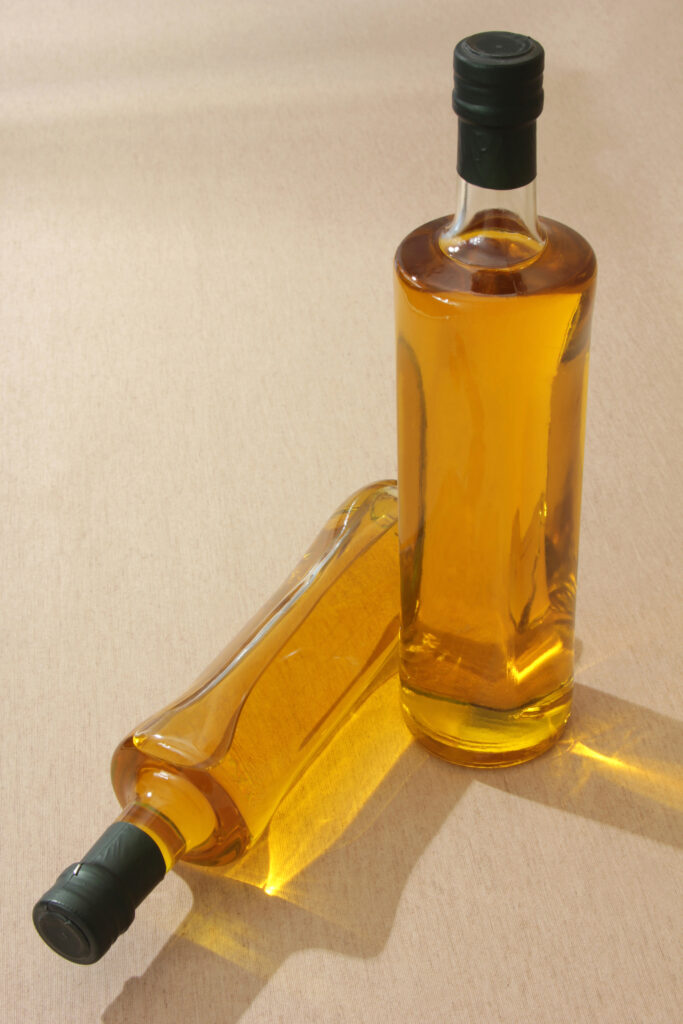

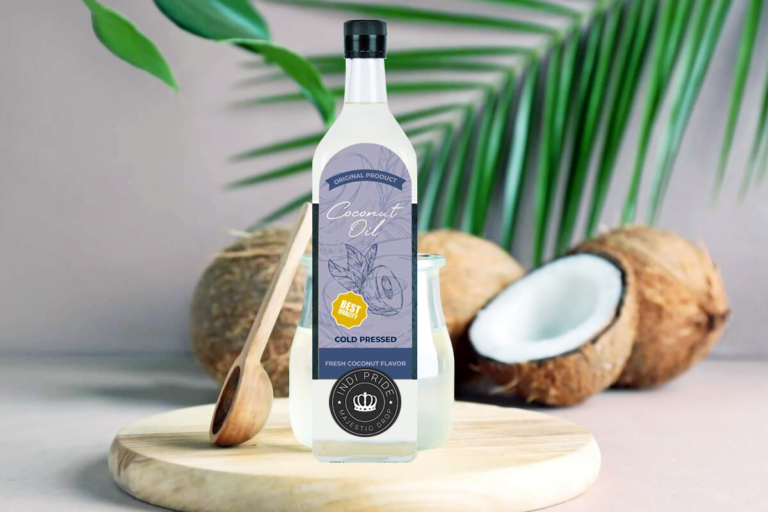
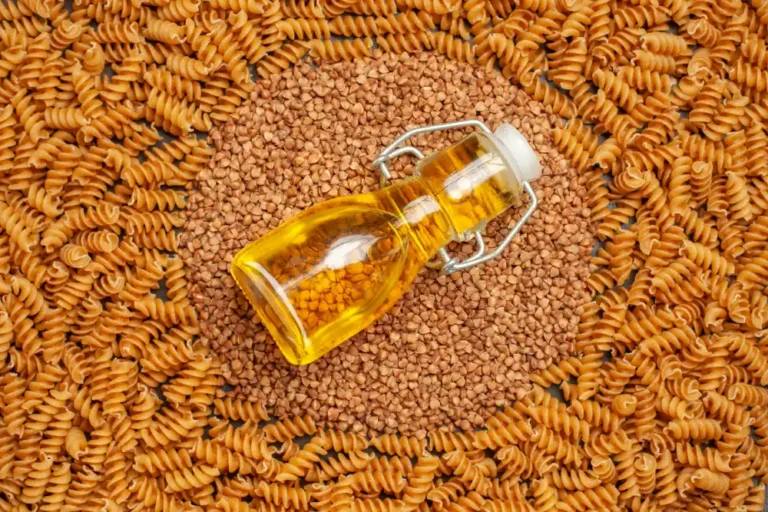
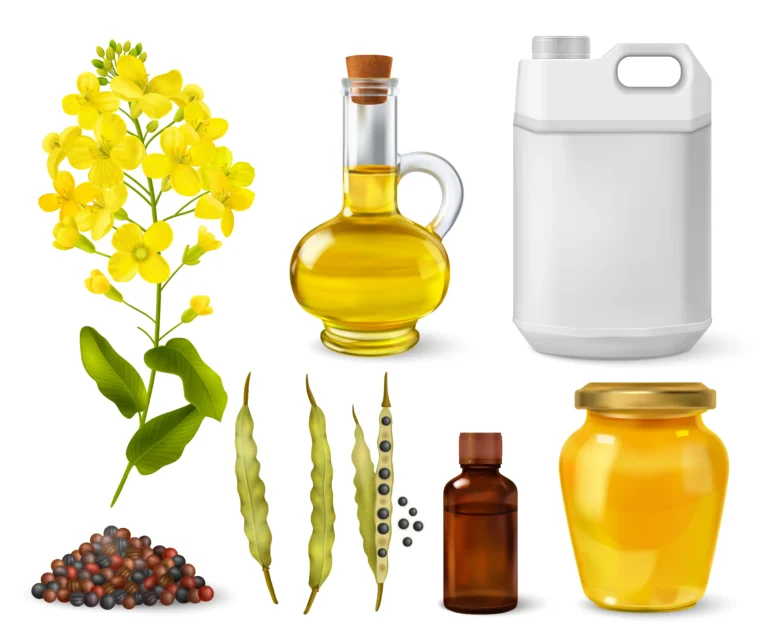
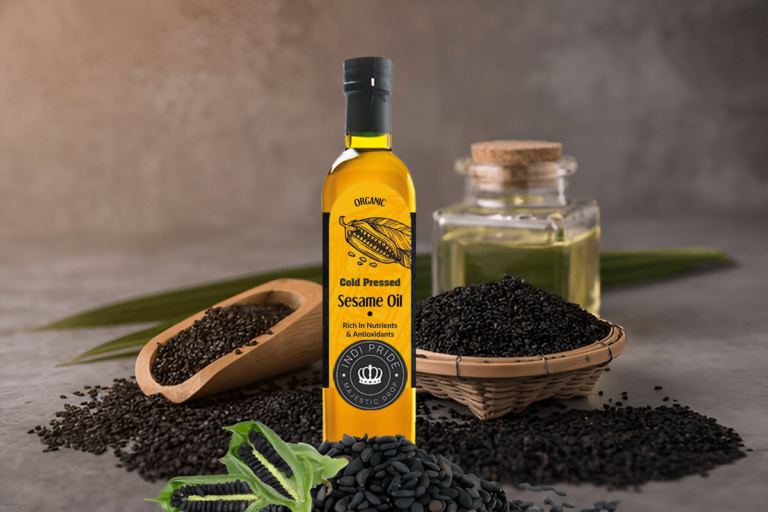
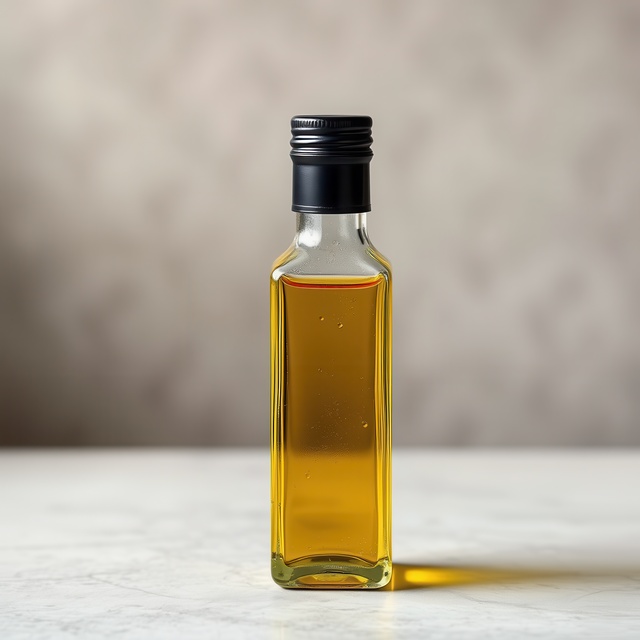
Oils to Limit or Avoid, Especially for High-Heat Cooking
Oil Type | Key Concerns | Why Avoid High Heat |
Partially Hydrogenated Oils (Trans Fats) | Extremely unhealthy; linked to heart disease, raises LDL, lowers HDL, and promotes inflammation. | Artificially created; no safe level of consumption; avoid entirely. |
Highly Refined Vegetable Oils (Soybean, Corn, “Vegetable Oil” Blends) | High in omega-6 fatty acids; potential for imbalance; unstable at high heat. | Prone to oxidation and formation of harmful compounds (aldehydes) when heated excessively; contributes to omega-6/omega-3 imbalance. |
Low Smoke Point Oils (Flaxseed, Walnut, EVOO) | Low smoke points; rich in delicate nutrients. | Break down and produce harmful compounds at relatively low temperatures; destroy beneficial nutrients when overheated. |
If you are looking for cold pressed oil, then you can buy at the IndiPride Online Store. We focus on delivering top-quality spices through honest and clear practices.
We buy directly from small farms in India, making sure farmers get fair prices and the ingredients can be traced. We then check quality at every step, from harvesting to packaging. All our products are free from synthetic pesticides and chemicals.
Buy Now and Lead a Healthy Life
FAQs on Healthy Cooking Oils
What is the best cooking oil for cholesterol reduction?
Extra Virgin Olive Oil is highly recommended for lowering cholesterol because it is rich in oleic acid, a type of MUFA, and contains antioxidants like polyphenols. It is known to improve heart health by reducing bad LDL cholesterol levels and increasing good HDL cholesterol levels.
Which oil should be used for everyday cooking?
Avocado Oil: High smoke point, ideal for high-heat cooking. Mild flavor.
Canola Oil: Versatile, suitable for various cooking methods. Neutral flavor.
Olive Oil (Refined): Higher smoke point than EVOO, good for medium-high heat cooking.
What is the best cooking oil for fatty liver?
Olive Oil and Avocado Oil are excellent choices for individuals with fatty liver. They are rich in monounsaturated fats, which can help reduce liver fat and improve overall liver health. Both oils are also known for their anti-inflammatory properties.
What is the best refined oil for health?
When choosing a refined oil for health, Refined Avocado Oil and Refined Canola Oil are good options. They have a high smoke point, making them suitable for high-temperature cooking, and retain a significant amount of their healthy fat content and nutrients.
Which oils should I avoid or limit?
Partially Hydrogenated Oils (Trans Fats): Avoid entirely.
Highly Refined Vegetable Oils: (Some soybean, corn, etc.) May contain high levels of omega-6 fatty acids. Use in moderation.
Limit Saturated Fats: Found in butter, coconut oil, and animal fats.
How do I choose the right oil for a specific cooking method?
High-Heat Cooking (Frying, Searing): Avocado oil, refined olive oil, canola oil, sunflower oil (high-oleic).
Sautéing: Olive oil (extra virgin or refined), avocado oil, canola oil.
Baking: Canola oil, coconut oil, melted butter.
Salads & Dressings: Extra virgin olive oil, balsamic vinegar, flaxseed oil.
How should I store cooking oils?
Store in cool, dark places, away from heat and light. Use airtight, dark glass bottles.
What are some important considerations when choosing cooking oils?
Consider your individual dietary needs and preferences.
Choose oils that align with your health goals (e.g., heart health, weight management).
Use oils in moderation as part of a balanced diet.
Be mindful of allergies (e.g., nut allergies).
Conclusion

So, finally, you get to know which is the best cooking oil for health.
You don’t need to buy all types of oils.
For a good starting point, you can use
- Olive oil (extra virgin): For low-heat cooking, salad dressings, and finishing dishes.
- Avocado oil: For high-heat cooking like frying, searing, and stir-frying.
These two oils cover a wide range of cooking methods and offer good health benefits.
If you want to include more variety or address specific needs, you could consider Flaxseed oil and Canola oil.
Ultimately, the best approach is to ask these questions yourself and choose
- Do you mostly sauté, stir-fry, bake, or deep fry?
- Are you focusing on heart health, increasing omega-3 intake, or something else?
- And, choose 2-3 oils that meet those needs.
Remember to use oils in moderation as part of a balanced and varied diet.

